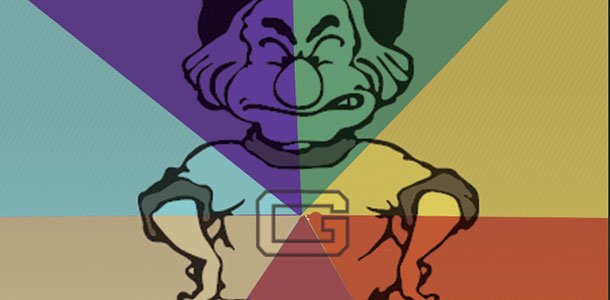Core values offer chance to change
How often do you think about Guilford’s core values in your day-to-day life? Be honest — it is not very Quaker to lie.
Guilford established its seven core values, community, diversity, equality, excellence, integrity, justice and stewardship, in 2002 shortly after the arrival of the school’s former President Kent Chabotar. Since then, they have seen their fair share of fame. They conotinually reveal themselves in how we are taught, how we are questioned and how we spend our time.
Guilford encourages us how to think within the spheres of the core values, and the campus events put on by students, such as Black Lives Matter week, Environmental Awareness week and the candle vigil for Palestine, emulate that learned skill.
It is a valuable way of thinking, but do we really take these values to the core of our being? Are they applied to our personal lives to the same effect as our academic ones?
Growing up Quaker, I have been around these values for most of my life. I have been taught to look at things through the perspective of community rather than individualism.
Despite this, I still normally put myself first in some situations, and I think other students here are the same way.
I have seen people promote the importance of community within a team and then go to one-dollar taco night only to trash-talk another member. People have organized amazing social justice events on campus that promote diversity and then excluded people who did not go. I have encouraged integrity to my peers and later not owned up to my own mistakes.
American culture teaches us to value individualism over collectivism. We are a selfish culture, and we are taught selfishness from a young age. Our lives are a constant competition to be the fastest, smartest, most attractive and best person out there. We will compete, we will win and we will put down people who stand in our way.
It is hard to dismantle something that is so institutionalized.
By attending Guilford, we are offered a place to tweak our thinking. We think in terms of others — what is greater for the community. We learn not for ourselves, but to share our knowledge with others. We want to make an impact.
Many students and faculty see this change happening within students every day. Something will click in their in minds as they begin to think not in terms of what is best for them.
Not only do they begin to care about what is happening in the world, but they also want to help. They want to spread the word, carrying those seven core values on their backs.
It is an amazing process, but how far does it reach?
So many people I know really echo these values in what they do for the community and how they think in the classroom, but when it comes to their personal lives they are quick to judge and exclude. It seems that because we hold ourselves to this high standard of thinking and being, we begin to think we are better than those who do not.
How many of us can say that we have not thought of ourselves as a better or cooler person than a fellow classmate or friend? How many of us have manipulated or backstabbed people we claim to care about only to put ourselves ahead of them?
I have done and thought both, and I am sure that most of you have as well.
Guilford does a fantastic job in beginning a shift of thinking to incorporate everybody into our view, but I challenge this community to take it one step further.
We are not valuing community, diversity, or equality by excluding others. We are not valuing integrity, justice, or stewardship by refusing to own up to our mistakes. We are not valuing excellence by selling ourselves out along with our classmates, and we need to ruminate on what these core values mean, and how we can genuinely apply them to our lives.
Consider what it means to speak of someone harshly in confidence rather than elevating them, or what it means to push someone down to pull yourself up rather than encouraging his or her success.
It does not feel good to throw others under the bus, yet we keep doing it. Why? Because we are taught to.
Let’s break the cycle.











